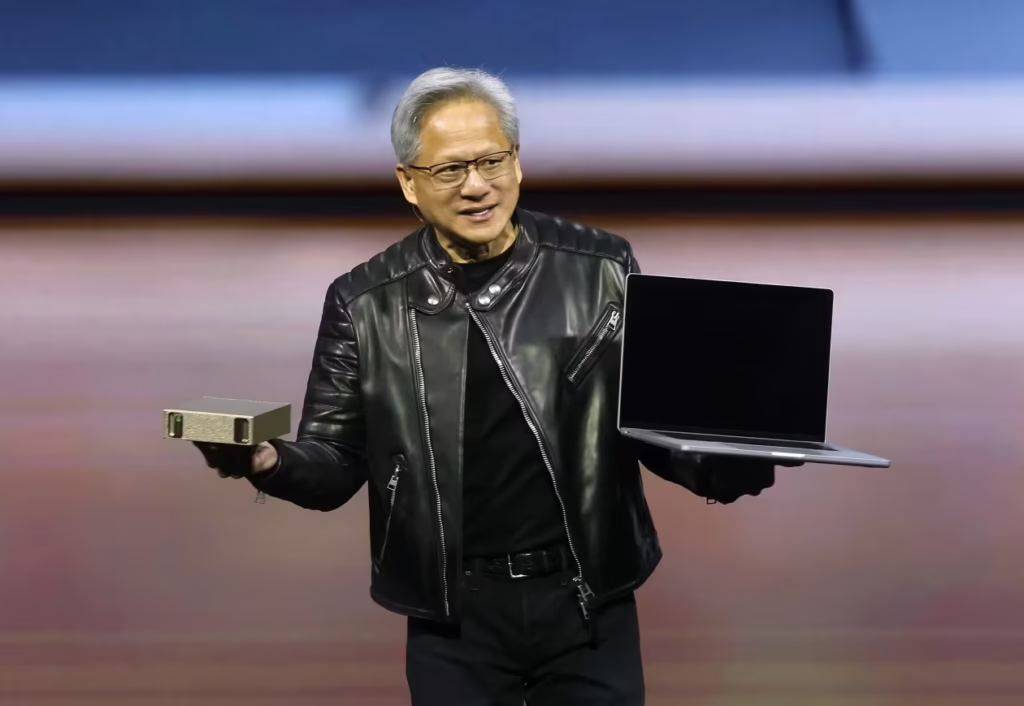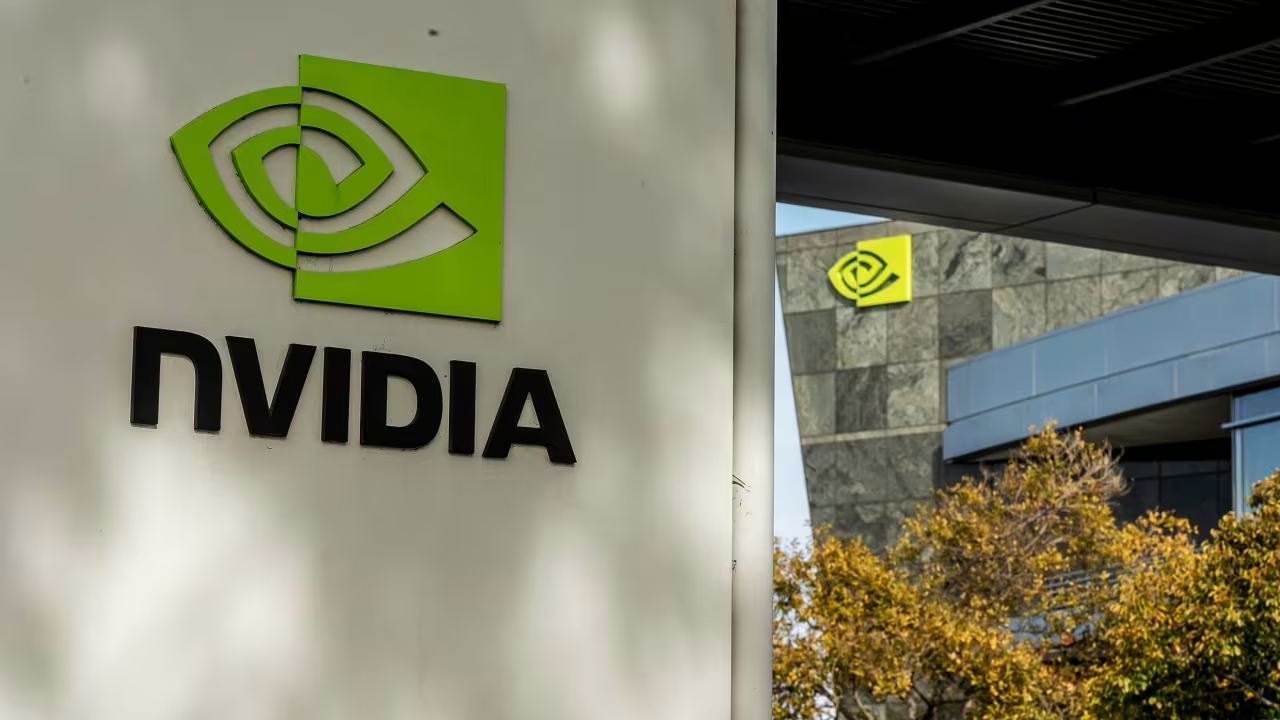In a powerful display of its growing dominance in the artificial intelligence (AI) industry, Nvidia has just crossed a historic milestone — a market capitalization of Nvidia’s $3 trillion. This comes after the announcement of a mega-deal with Saudi Arabia’s AI startup, Humai, which will see over 18,000 of Nvidia’s most advanced GB200 Grace Blackwell AI chips powering a massive data center in the Kingdom.
The landmark partnership is not just a financial win for Nvidia, but a clear signal of the company’s expanding influence in the future of AI infrastructure worldwide. Nvidia’s stock price surged more than 5% after the announcement, closing the trading day at $129.93. The company has become the backbone of global AI innovation, and this deal further cements its position as a critical supplier in the age of machine intelligence.
Saudi Arabia’s AI Ambitions
Saudi Arabia, known globally for its oil wealth, is actively working to diversify its economy through Vision 2030, a long-term strategic plan that includes massive investments in AI, green energy, and technology. This deal with Nvidia reflects the Kingdom’s serious commitment to becoming a global AI powerhouse.
The proposed 500-megawatt data center — set to be built in partnership with Humai, which is backed by the Saudi sovereign wealth fund — will rely on the immense processing power of Nvidia’s AI chips to run large language models, power generative AI tools, and enable cloud-based services for businesses across the region. It’s one of the largest known AI infrastructure deals to date, and Nvidia’s role puts it at the center of this technological transformation.
Jensen Huang: From Innovator to Icon
For Nvidia CEO Jensen Huang, the impact of the deal is both symbolic and personal. Already a figurehead in the tech industry, Huang has now seen his personal net worth soar to around $120 billion. That makes him one of the richest people on the planet and possibly the most influential figure in the AI sector.

Huang’s vision for AI as a utility — akin to electricity or the internet — is playing out on the world stage. In his words, “AI is the new essential infrastructure. Just as every country needs roads, power, and communication, they now need AI infrastructure to compete in the global economy.” This philosophy is not only shaping Nvidia’s business strategy but also driving government policy in tech-forward nations like Saudi Arabia.
Stock Surge and Investor Confidence
Investors have responded with overwhelming confidence. Nvidia’s stock rise on the heels of this announcement highlights the market’s belief in the company’s strategy, products, and leadership. The AI boom shows no signs of slowing, and Nvidia is uniquely positioned at the intersection of demand and innovation.
The company’s Blackwell chip architecture, touted as its most powerful and energy-efficient to date, is designed to run next-generation AI workloads. By selling these chips to governments and corporations that are investing billions in AI infrastructure, Nvidia is opening new high-margin revenue streams that go far beyond consumer tech.
This surge in valuation brings Nvidia shoulder-to-shoulder with other trillion-dollar giants like Apple, Microsoft, and Alphabet, solidifying its place in the tech elite.
AI Infrastructure: The New Oil?
Much like oil in the 20th century, computing power is becoming the new resource battlefront. And Nvidia — with its dominance in AI chips and systems — is providing the essential tools to power this global arms race in technology. Countries are racing to secure access to computing, and Nvidia’s hardware is increasingly the gold standard.
Saudi Arabia’s move to secure 18,000 Blackwell chips reflects a broader geopolitical shift. Governments are now acting like corporations, strategically building data centers and AI capabilities to prepare for a future where technology drives every aspect of national competitiveness — from defense to economics.
This trend is echoed across the world. In the U.S., Europe, China, and now the Middle East, nations are investing in sovereign AI capabilities. As Nvidia plays supplier to all of them, its strategic leverage only grows.
What This Means for the Global AI Race
The AI race is no longer just about flashy applications like chatbots or photo generators. It’s about infrastructure — who controls the compute, who owns the models, and who has access to real-time data processing. The Nvidia-Humai deal is a prime example of this next chapter.
The 500-megawatt data center will serve as a national AI engine for Saudi Arabia, enabling homegrown startups, enterprises, and government agencies to deploy advanced AI tools and services. It also creates opportunities for new businesses, research institutions, and public-sector innovation to flourish.
In many ways, this deal is just the beginning. As more countries look to replicate the U.S. AI model, Nvidia is likely to continue forming critical alliances with governments and global corporations eager to leap into the AI era.
Looking Ahead
Nvidia’s massive chip deal with Saudi Arabia isn’t just a business transaction — it’s a defining moment in the global AI narrative. It underscores a shift in how countries view technology: not just as a tool, but as a foundational element of national development.
From its humble beginnings as a graphics card maker to becoming the most valuable chip company in the world, Nvidia’s story is one of vision, timing, and relentless innovation. With a $3 trillion valuation now in the books and its CEO climbing the billionaire ranks at record speed, the company is poised to define the next decade of computing.
Investors, governments, and tech enthusiasts will be watching Nvidia closely — not just for what it builds next, but for how it continues to shape the future of artificial intelligence on a global scale.
The Maverick Behind Makaan: Tahir Sultan’s Journey of Cultural Alchemy



